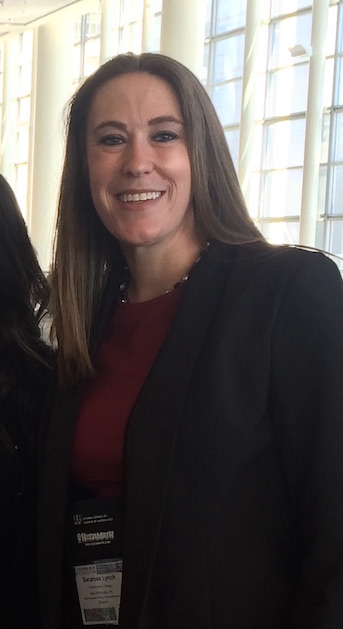The Service, Teaching and Research (STaR) Program is an induction program for early career mathematics educators working at institutions of higher education. The STaR program has supported seven cohorts of 239 early career mathematics educators from over 100 different higher education institutions since 2010.
Beginning with this issue, twice each year we will be highlighting the work and STaR program reflections of a former fellow. In this issue we highlight the work of Sararose Lynch (2014 Cohort).
This semester, Assistant Professor of Education Sararose Lynch begins her fourth year at Westminster College in New Wilmington, PA. She is primarily responsible for mathematics education courses and an inclusive classroom course for preservice elementary and secondary majors. Currently, Sararose is working on three different projects focused on preservice student learning or elementary aged students’ engagement in productive struggle via a metacognitive problem solving framework. After a year of creating and planning, she is presently teaching two courses that are embedded in the PreK-12th grade setting: Mathematics Methods for Early Childhood and Teaching in Areas of High Need. The methods course focuses on preservice teachers learning to respond to student thinking and the high needs course is a new course for NSF NOYCE scholars who are secondary science or mathematics education majors. Through a college-school partnership, she is conducting a research project in which she provides professional development for 3rd and 4th grade teachers, while co-teaching with them, and investigating students' use of a metacognitively-based problem solving framework (I-THINK).
She has two recently accepted publications focused on these projects, and this spring she plans to present aspects of these projects at AMTE and NCTM. Many of these undertakings are collaborative ventures with other STaR fellows who Sararose met during, or in result of, her time at the STaR Institute.
Following her second year of holding a tenure-track position, and two years after earning her doctorate from West Virginia University in C&I with an emphasis in Mathematics Education, Sararose was a member of the 2014 STaR cohort. Sararose notes, “My STaR experience was the most valuable opportunity I’ve had to help set my career trajectory on a productive path. I was able to learn from leaders in the field while connecting with other early career mathematics teacher educators. Being the only mathematics teacher educator in my college, this experience afforded me the opportunity to create a network of colleagues nationwide to collaborate with on research and teaching. This experience taught me how to successfully contribute to the field of mathematics education by helping me learn how to grow from the challenges and successfully manage the responsibilities of being a mathematics teacher educator.”

